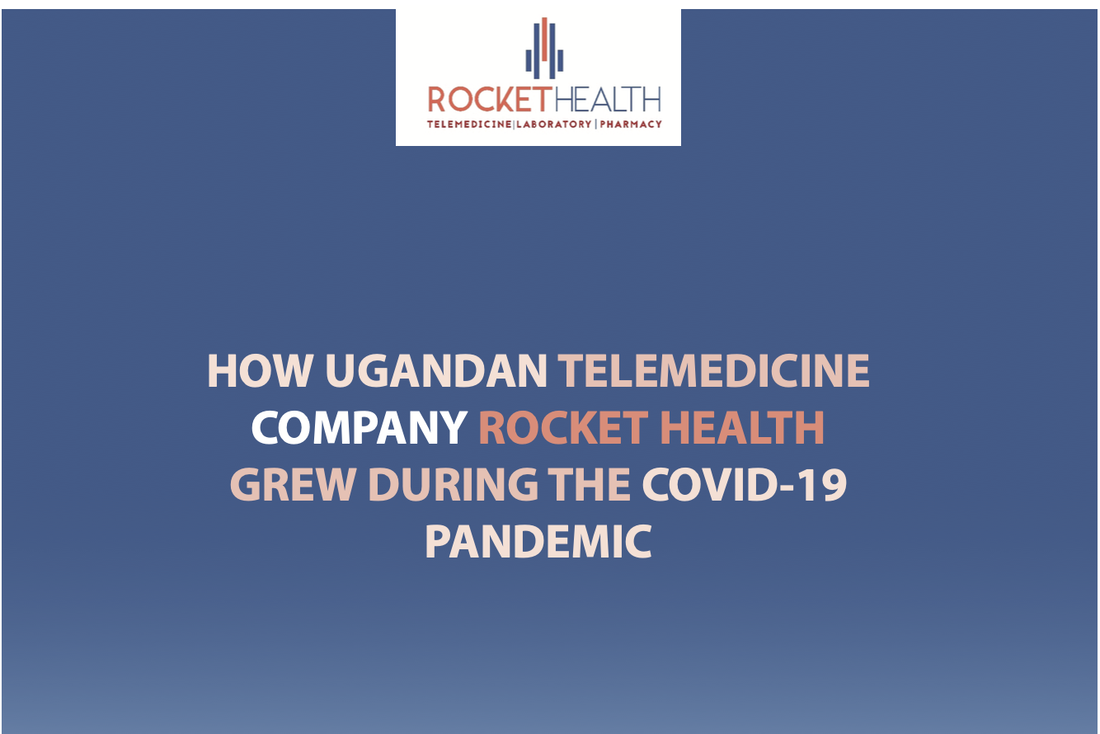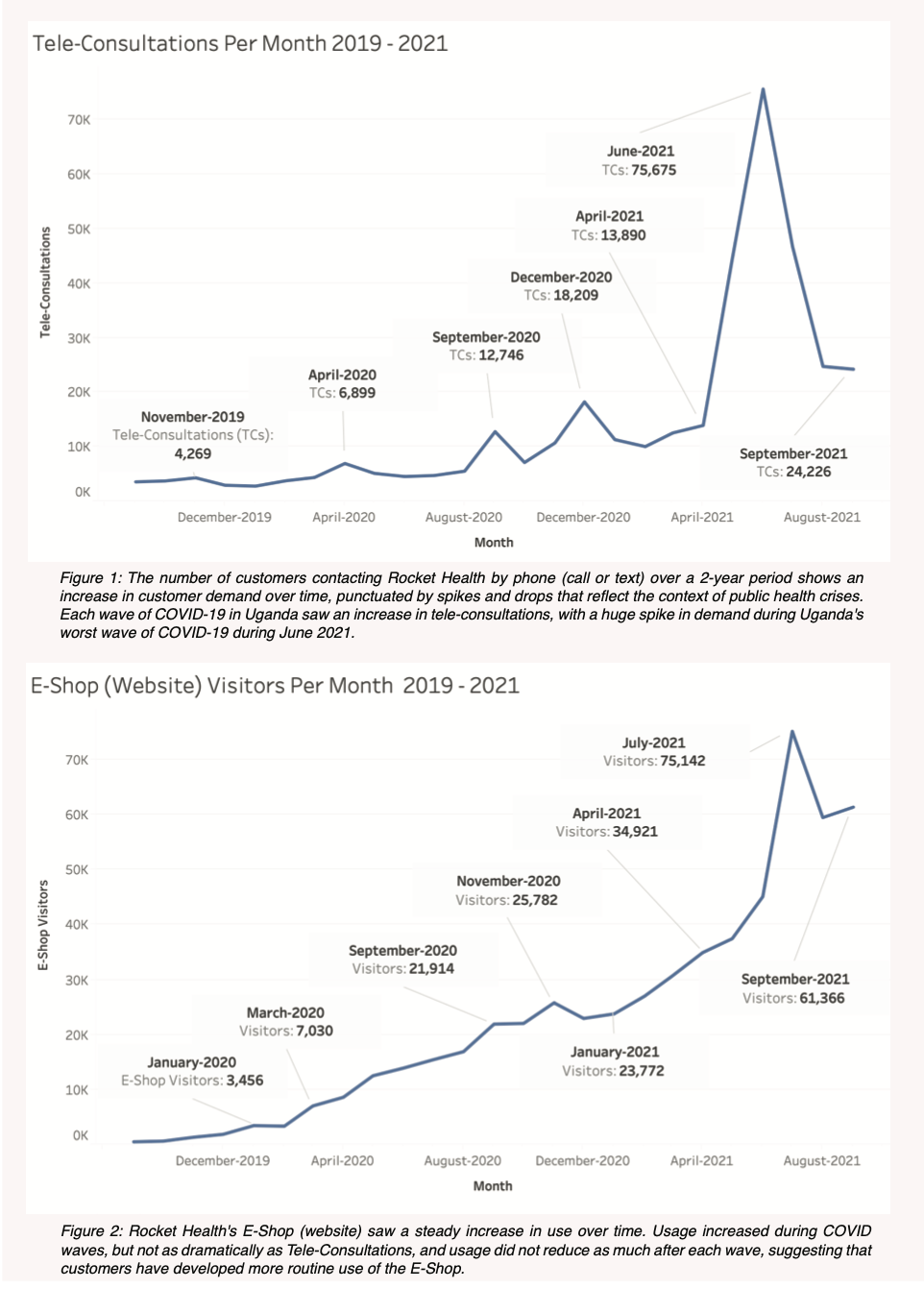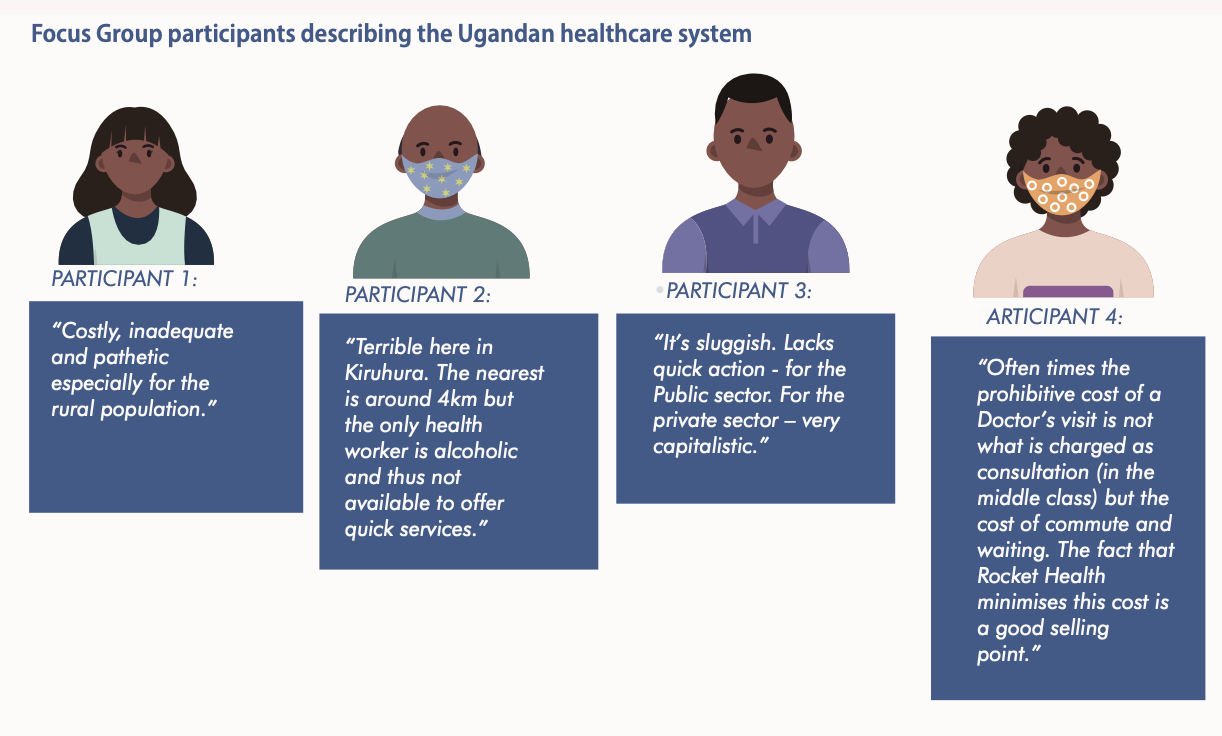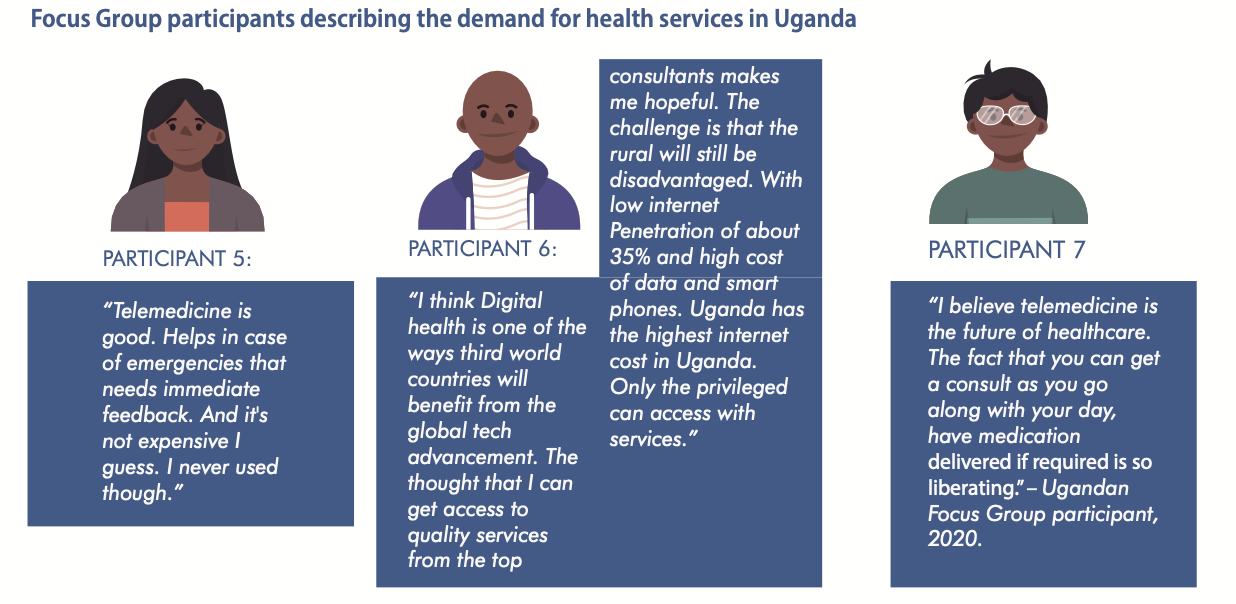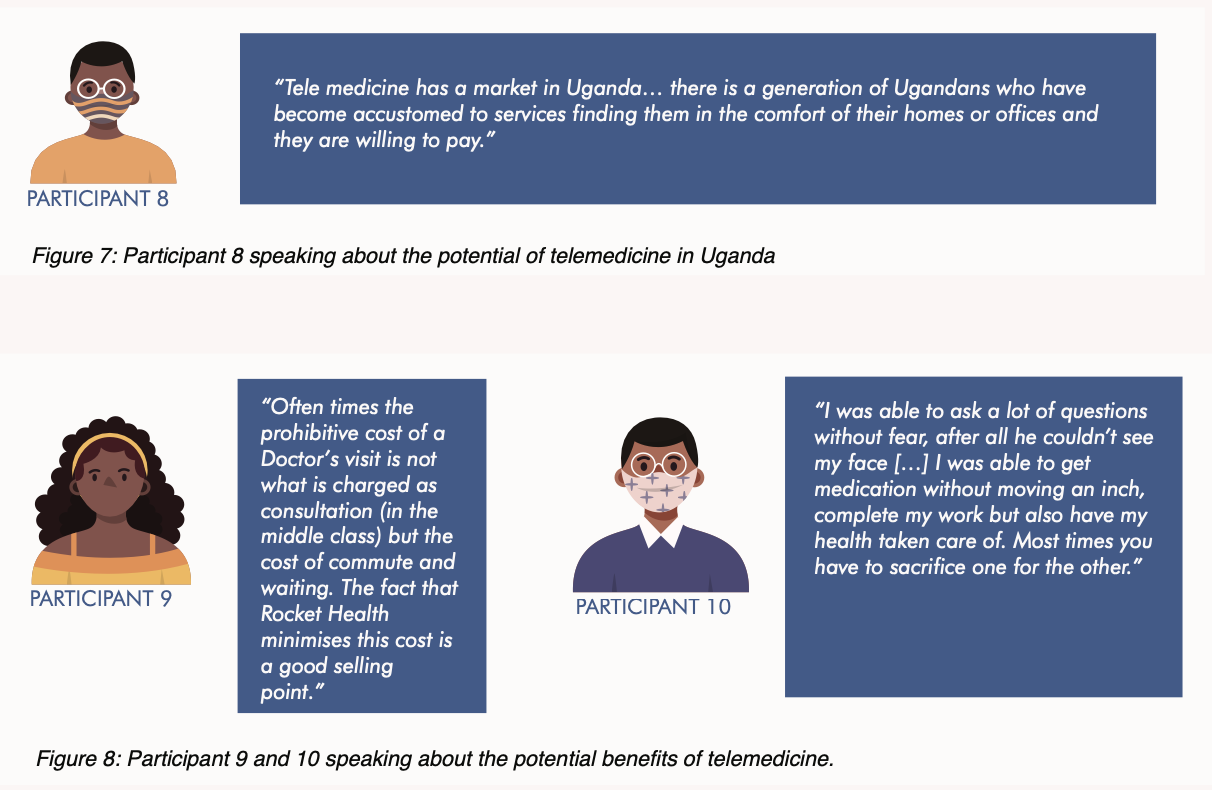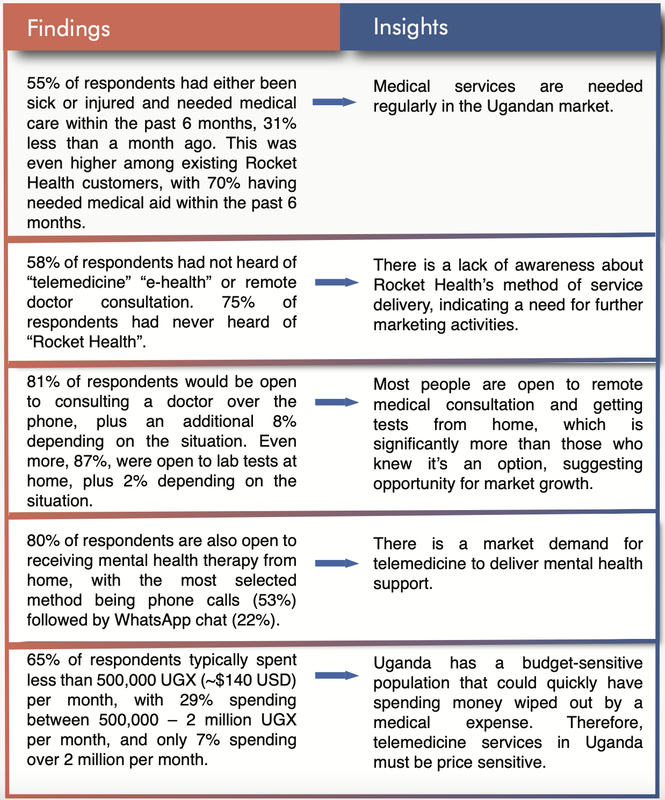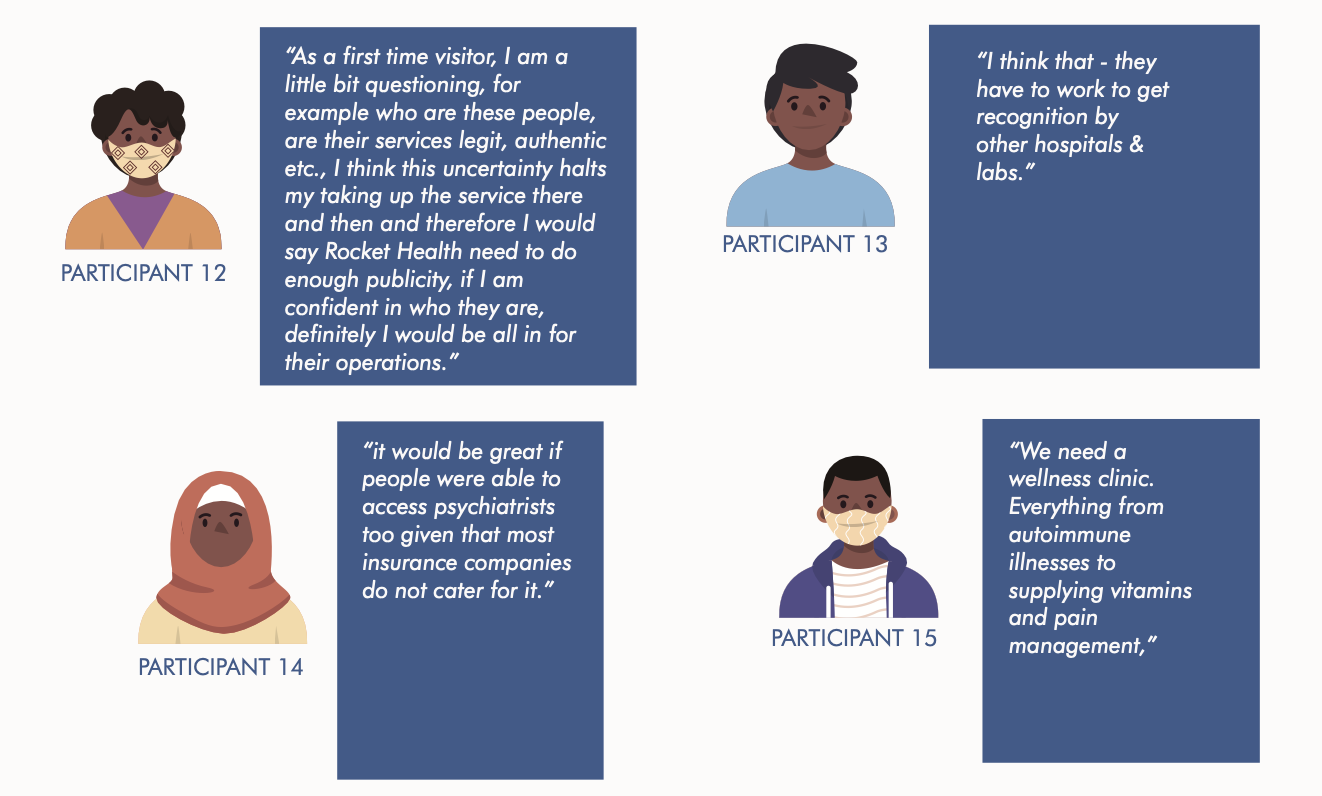Starting near the beginning of the pandemic in 2020, Whitehead Communications partnered with Ugandan telemedicine company Rocket Health to track the company's experience through the pandemic, looking at their market potential and public opinion toward the overall idea of telemedicine in a Sub-saharan African country, while advising on communication strategies that may help the company attract and retain more customers.
Our research included:
While most of Whitehead Communications' research was supplied exclusively to Rocket Health in order to inform company strategy, we agreed to share some of our results with the general public.
Our research included:
- Focus Groups (conducted virtually using WhatsApp)
- Surveys (distributed online, over the phone and in person)
- Social media monitoring
- Network analysis
- Topic analysis
- Sentiment analysis
- Digital news media monitoring
- Business data review
- Regional market research
While most of Whitehead Communications' research was supplied exclusively to Rocket Health in order to inform company strategy, we agreed to share some of our results with the general public.
Introduction
Rocket Health, a telemedicine and digital health service in Kampala operated by The Medical Concierge Group (TMCG), has experienced significant growth through the first year and a half of the pandemic. Seven years into operations, some doubted the company's market potential because it is heavily reliant on digital literacy in a country where internet access is limited, and much of the population is not highly educated or exposed to modern technology.
However, the pandemic crisis created an opportunity for Rocket Health. During the pandemic, residents had their movements restricted amidst great uncertainty and anxiety about health. In this context, Rocket Health experienced a spike in their clientele, with more people seeking to access healthcare services through digital tools. As a result, Rocket Health services were significantly embraced in Kampala and the surrounding areas. This progress built on and went beyond to the known growth of mobile and technology adoption in Africa by extending telehealth services beyond the digital divide through strategic marketing and communications.
Due to the government efforts to curb the spread of COVID-19, most people were limited in their ability to travel to access healthcare, and by design Rocket Health served thousands of people through tele-consultations, home-based COVID-19 care, home COVID-19 testing, and delivery of pharmaceutical supplies. Even outside the occasional waves, this work has made Rocket health a household name in certain areas of Uganda.
Summary of Rocket Health Growth
At the height of the COVID-19 pandemic in Uganda, Rocket Health experienced unprecedented growth, which was reflected on both their online and offline platforms. Both the phone-in contact number and website ‘E-Shop’ saw growth in users, particularly at key times of the pandemic such as the first lockdown in the month of April 2020, and the most impactful wave of COVID-19 experienced by Uganda in June 2021.
From the period of October 2019 to September 2021, Rocket Health registered the following increases in business:
Rocket Health, a telemedicine and digital health service in Kampala operated by The Medical Concierge Group (TMCG), has experienced significant growth through the first year and a half of the pandemic. Seven years into operations, some doubted the company's market potential because it is heavily reliant on digital literacy in a country where internet access is limited, and much of the population is not highly educated or exposed to modern technology.
However, the pandemic crisis created an opportunity for Rocket Health. During the pandemic, residents had their movements restricted amidst great uncertainty and anxiety about health. In this context, Rocket Health experienced a spike in their clientele, with more people seeking to access healthcare services through digital tools. As a result, Rocket Health services were significantly embraced in Kampala and the surrounding areas. This progress built on and went beyond to the known growth of mobile and technology adoption in Africa by extending telehealth services beyond the digital divide through strategic marketing and communications.
Due to the government efforts to curb the spread of COVID-19, most people were limited in their ability to travel to access healthcare, and by design Rocket Health served thousands of people through tele-consultations, home-based COVID-19 care, home COVID-19 testing, and delivery of pharmaceutical supplies. Even outside the occasional waves, this work has made Rocket health a household name in certain areas of Uganda.
Summary of Rocket Health Growth
At the height of the COVID-19 pandemic in Uganda, Rocket Health experienced unprecedented growth, which was reflected on both their online and offline platforms. Both the phone-in contact number and website ‘E-Shop’ saw growth in users, particularly at key times of the pandemic such as the first lockdown in the month of April 2020, and the most impactful wave of COVID-19 experienced by Uganda in June 2021.
From the period of October 2019 to September 2021, Rocket Health registered the following increases in business:
- Amount of voice call traffic increased by 315%
- Number of encounters from insured members increased by 344%
- Users of the online shop (E-shop) increased by 331%
2020 Public Opinion Research on Telemedicine in Uganda
In August of 2020, the research team at Whitehead Communications carried out research on awareness of and public opinion on telemedicine in Uganda. The research objective was to ascertain to what extent Ugandans understood telemedicine and may be open to using such services. The team also gathered feedback from Rocket Health customers in Uganda with the intention of learning how the telemedicine provider could serve them better. This research was done through surveys and focus groups (more on the methodology below).
We surveyed 392 Ugandans about their views on Telemedicine, 37% of which were located in Kampala where Rocket Health is based, and the rest were spread across the country. Our findings suggested that while the majority (58%) had never heard of telemedicine, more (80% +) were open to the idea.
The Challenge of Healthcare in Uganda
In focus groups, the Whitehead Communications team asked Ugandans to describe their experience with healthcare in Uganda. Participants described a health system with services often distant from their homes, poorly resourced, and often expensive. This description spans both public and private healthcare. Furthermore, it was reported that there are often not enough doctors to meet patients’ needs, and services in health care are often slow and frustrating.
Demand for Telehealth Services in Uganda
Among the Ugandans who understood what telemedicine is, whether they were an existing user or had just found out what it was, most respondents believed that it could be a good solution to their healthcare needs.
Among the Ugandans who understood what telemedicine is, whether they were an existing user or had just found out what it was, most respondents believed that it could be a good solution to their healthcare needs.
Benefits of Receiving Medical Assistance at Home
Most Ugandans we spoke with could quickly recognise the potential benefits of telemedicine services, whether or not they had experienced telemedicine services before.
Key Insights
Challenges in Uganda’s Telemedicine Market
The biggest challenges respondents suggested that people may face in receiving healthcare from home included:
- Connectivity
- Digital illiteracy
- Awareness
- Trust
- Financial constraints
Recommendations to Overcome Challenges and Meet Market Demands
Respondents in Uganda made several recommendations to help meet the challenges of rolling out telemedicine services in Uganda.
- Increase marketing to create more awareness about telemedicine
- Build trust in this new method of healthcare through strategic partnerships with trusted health........brands including the national Health Ministry and NGOs like USAID
- Introduce a USSD code to ease access for potential customers that do not have internet access or .......basic digital literacy skills
- Increase specialised services, such as mental healthcare and services for the chronically ill.
For more on how Rocket Health grew in 2020-2021 and which communications tactics were most successful...
You can download the full report here.
Please contact [email protected] or [email protected] for more information.
You can download the full report here.
Please contact [email protected] or [email protected] for more information.

